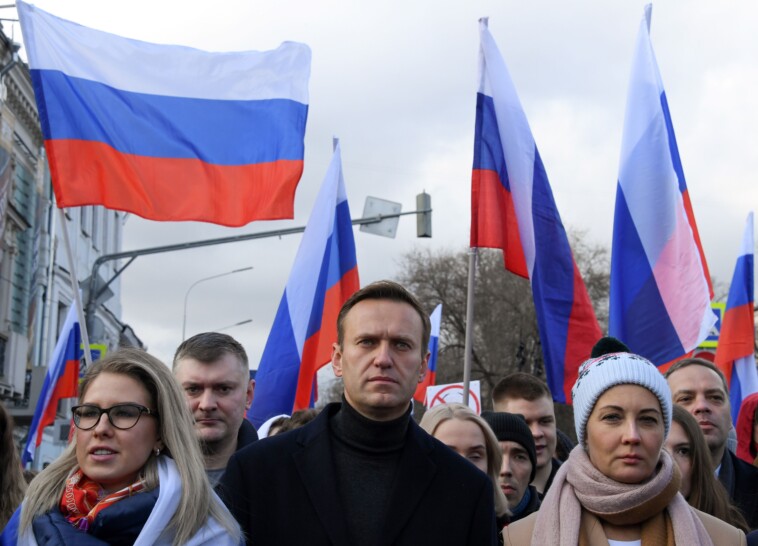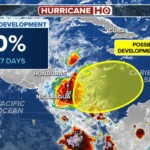On Alexei Navalny’s first night in a prison cell, after being arrested at a Moscow airport in early 2021, he slept like a baby.
“You would imagine you would be pacing around within those four walls and unable to settle down,” the late activist writes in his posthumous memoir, “Patriot” (Knopf), out now. But instead, he felt a weird sense of relief.
“I had no doubt I would be spending the next five years in prison,” writes Navalny. “My future was predetermined and clear. There would be no surprises.”
It had already been a year of too many surprises for one of Vladimir Putin’s most outspoken critics. (In the book — pieced together between diary entries before and after his death along with his social media posts — Navalny describes the Russian president as a “vengeful runt” and a “bribe-taking old man.”) Five months earlier, Navalny had nearly died during a flight from Siberia to Moscow, after being poisoned with a nerve agent.
He realized something was wrong mid-way through watching an episode of “Rick and Morty” on his laptop, he writes. Navalny spent the next 18 days in a coma, waking up in hospital in Germany. Though he was lucky to have survived, he wasn’t deterred from his campaign against Putin. After all, it wasn’t the first attempt made on his life. He’d been attacked with mysterious chemicals before: once in 2017, when he was temporarily blinded in his right eye from a green substance, and again in 2019 while at a prison hospital.
Despite the huge risks, he remained “obsessed with the idea of getting back to Moscow as quickly as I could,” he writes. “Putin is nuts, but he’s not going to be crazy enough to create a major incident by arresting me at the airport.”
Navalny was wrong; Putin was that nuts. And what’s more, one of the arresting officers looked strangely familiar to Navalny. Though he was wearing a mask — this was still during the thick of the pandemic — Navalny could’ve sworn that he looked exactly like Ivan Vladimirovich Osipov, one of four Russian Federal Security Service operatives he suspected had poisoned him.
“He has exactly that same round face, the bags under his eyes, and, most important, a shock of graying hair at the front,” Navalny writes. He couldn’t be certain, but it seemed like something Putin would do, just to get under Navalny’s skin.
Over the next two and a half years, Navalny was faced with an increasing number of trumped-up charges, everything from violating parole to embezzlement to slandering a World War II veteran. By August of 2023, as the final nail in his coffin, he was sentenced to 19 years for extremism. But his only crime was daring to question the absolute authority of Putin.
Navalny never set out to become the public face in the battle against Russian authoritarianism, much less a martyr. He originally planned on a career in law, but gravitated toward activism, first targeting corrupt oil and gas companies before turning his attention to the Kremlin. He founded the Anti-Corruption Foundation (ACF) in 2011, and posted wildly popular videos on YouTube, which purported to tell the truth about Putin’s gang of “crooks and thieves.”
Navalny was particularly disgusted with nostalgia for the glory days of the USSR, a sentiment that was baked into Putin’s worldview. (“We shall be as respected and feared as the USSR,” was Putin’s unofficial slogan.) “I thought it laughable and was sure it wouldn’t work, but I was wrong,” Navalny writes.
Navalny didn’t share this nostalgia. In fact, his most enduring childhood memory was trying (and not always succeeding) to get milk for his baby brother. “Every day after school I would go to the shop and wait in line for at least forty minutes to buy that damn milk,” he writes, adding that he often walked home empty-handed. “A state incapable of producing enough milk for its citizens does not deserve my nostalgia.”
He doesn’t mince words when discussing Putin, insisting that he doesn’t just disagree with the Russian president but actively hates him. And not because of his attempts on Navalny’s life. “I hate Putin because he has stolen the last twenty years from Russia,” he writes.
Putin didn’t take the public criticism lightly. Navalny and the ACF were subjected to hundreds of raids of their offices, with “people in black masks sawing doors out of their frames, searching everywhere, seizing phones and computers,” Navalny writes. But the harassment was never enough to discourage him.
Navalny recalled a conversation with Boris Nemtsov, another Putin critic, who warned him that the Kremlin “could easily kill me because I was an [political] outsider.” But Nemtsov considered himself invulnerable, because he was a former deputy prime minister. A week later, Nemtsov was murdered in central Moscow, just yards from the Kremlin.
“I then understood that all of these conversations about who was in danger and who was safe were pointless,” Navalny writes.
When he was imprisoned in 2021, Navalny found the conditions to be akin to a “fascist-style concentration camp.” The exercise yard was just large enough for 27 steps around the perimeter. Doctors had to treat him through gaps in a cage. Because he was considered a flight risk, Navalny was woken up every hour by “a man in an overcoat standing beside my bed.”
His worst experiences were in the shtrafnoy izolyator (or SHIZO for short), a solitary confinement punishment cell. Navalny would be sent to the SHIZO for the most minor of infractions, like “regularly undoing the top button of my prison uniform,” he writes. Of the 1,126 days he was imprisoned, 295 were spent in the SHIZO.
He kept himself sane with writing in his dairy as well as responding to letters from admirers, many of whom “brought tears to my eyes,” Navalny writes. “A girl from the medical faculty in Yekaterinburg wonderfully described her qualms over whether to go to the rally. She decided it was scary but necessary.”
He also received numerous letters from girls, “who advised me that I have been designated a ‘crush’ on TikTok,” Navalny writes. He wrote back to every letter, often in a cell that was just five degrees Fahrenheit.
On Dec. 25th, 2023, Navalny was sent to the “Polar Wolf,” a remote Arctic penal colony once used as a gulag during the Soviet era. On Feb.16 the following year, he died, purportedly of “natural causes,” according to Russian authorities. His widow Yulia Borisovna Navalnaya — the mother of his two children who’s also emerging as his political successor — is convinced that, as she declared on YouTube, “Putin killed my husband.”
Navalny predicted his own demise. “I will spend the rest of my life in prison and die here,” he wrote. “There will not be anybody to say goodbye to. All anniversaries will be celebrated without me. I’ll never see my grandchildren.”
But despite his grim foresight, Navalny was unwavering in his belief that his death wouldn’t be in vain. “Life works in such a way that social progress and a better future can only be achieved if a certain number of people are willing to pay the price for their right to have their own beliefs,” he writes. “The more of them there are, the less everyone has to pay.”











